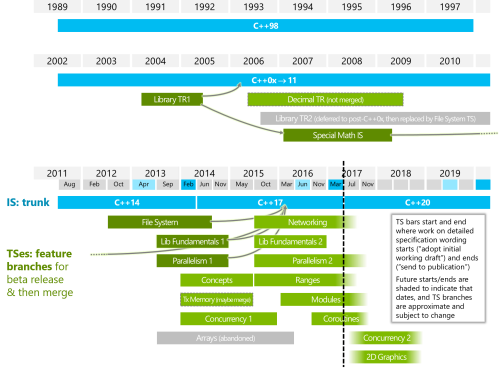Variadic CRTP -- Steve Dewhurst
Steve Dewhurst has published a new paper under his category Once Weakly:
Variadic CRTP
by Steve Dewhurst
From article:
One problem with [the] traditional application of CRTP is that it’s inflexible.... We can get [more] flexibility by specifying the CRTP capability as a template template parameter.

 A new trip report from the just-concluded ISO C++ meeting:
A new trip report from the just-concluded ISO C++ meeting:
 A trip report from the just-concluded ISO C++ meeting:
A trip report from the just-concluded ISO C++ meeting: